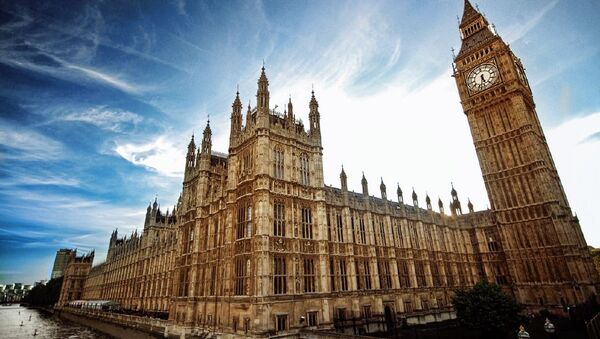The proposed legislation passed its third reading in the House of Commons — largely because the Labor Party voted with the ruling Conservative Party — and now proceeds to the House of Lords, where amendments may be made and the bill could even be sent back to the Commons.
The bill is set to give the UK security services — MI5, MI6, GCHQ and the police — powers to intercept and collect communications data, including phone call details, social media, web browsing history and emails. Most controversial is the ability to collect bulk data — vast amounts of information on the communications activities on individuals under no suspicion of illegal activity.
The UK Labour Party had been deeply skeptical about the wide powers that would be available under the bill — as well as the lack of judicial and parliamentary oversight. The party won some concessions over the bill, including a referral of the scope of bulk collection powers under the bill to the Independent Reviewer of Terrorism Legislation, David Anderson Q.C.
Harmit Kambo, Campaigns Director at Privacy International said:
"The overwhelming vote by MPs in favor of massively intrusive new state surveillance powers represents both a failure of the democratic process and a grim watershed moment for the privacy of every one of us."
UK spies circumvented surveillance laws with no 'meaningful' oversight https://t.co/IHcjprfKUI pic.twitter.com/oRIn7Y3RDc
— PrivacyInternational (@privacyint) 10 June 2016
Hundreds of Amendments Ignored
Kambo said: "We are disappointed that the official Opposition Party have acquiesced and voted in favor of the Bill, despite none of the amendments they proposed having been accepted. The only significant concession Labour received was an independent review of the operational case for the 'bulk powers' — but it's yet to be seen how effective that rushed review will be.
"This remains a deeply flawed Bill, which has changed remarkably little since it's draft version was published in November. While the Government repeatedly claim that the Bill has been thoroughly vetted, including pre-legislative scrutiny, three independent committee reports, and strong concerns raised from everyone from the technology sector to human rights groups, the reality is that the Home Office has stubbornly pushed this Bill through with little more than some tinkering at the edges."
"It will inevitably be abused, used to target minority groups, and enable public bodies to go on fishing expeditions. This was supposed to be a crucial moment to shape world-leading surveillance legislation that balanced security and privacy but it is an abject failure on both counts. We now look to the House of Lords to significantly improve this Bill, something that the Commons have singularly failed to do."




